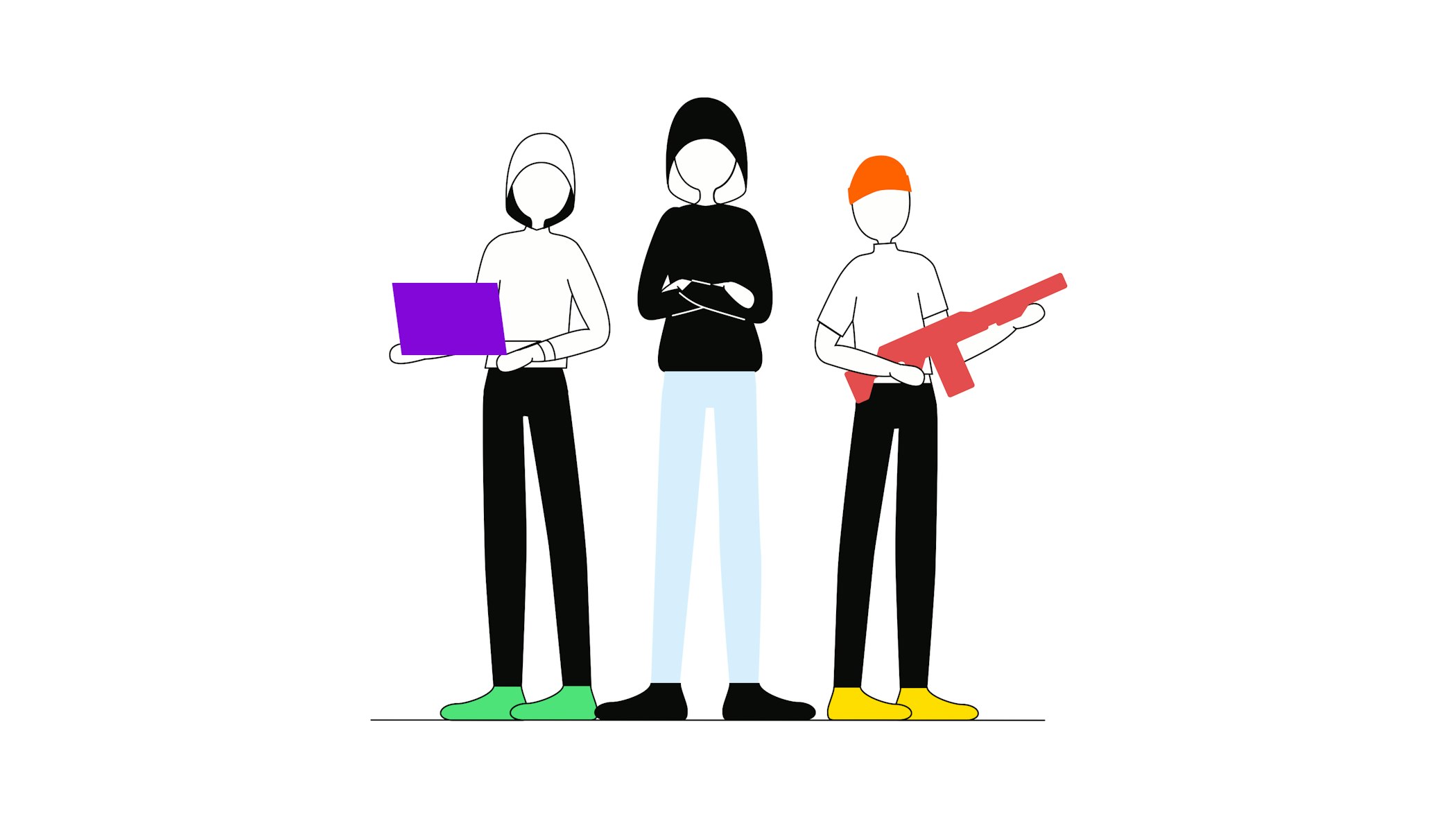
What is the Darknet and what does it have to do with Bitcoin?
The Darknet makes up a tiny portion of the so-called “Deep Web”. The Deep Web contains content that is not indexed by search engines, such as your personal email address, a brand’s gated pages or your online banking account.
The Darknet is a hidden, encrypted part of the Internet
Usually special software or settings are needed to access the Darknet
Not everything on the Darknet is illegal and journalists and activists often use it to protect their anonymity
Even so, the Silk Road was an early adopter of Bitcoin
In this article, you will learn the basics of the Darknet.
New to Bitpanda? Get started today!
Sign up hereThe term “Darknet” usually refers to the part of the internet, which is not indexed by search engines like Google that skim the “surface web”. The Darknet makes up a tiny portion of the so-called “Deep Web”. The Deep Web contains content that is not indexed by search engines, such as your personal email address, a brand’s gated pages or your online banking account.
To access sites in the Darknet, users need to use special software such as the Tor Browser as they are on an encrypted network to hide the identities of the people running the sites and services connected to them.
Note that just because a site or service is running on an encrypted, hidden network does not necessarily mean that it is illegal or dubious. For instance, journalists living in countries with oppressive regimes, political whistleblowers and activists utilise the Darknet to communicate online without leaving a digital footprint and needing to reveal their identities.
What was Silk Road?
Silk Road was one of the most popular Darknet sites. It described itself as an “anonymous marketplace”. Silk Road was utilised by its users as a black market for all types of (in most countries) illegal activities, like buying and selling drugs, credit card data or even guns and other weapons. It was the first Darknet black market of its kind and was the precursor for many similar sites.
What is the connection between the Darknet and Bitcoin?
The Silk Road black market was launched in February 2011. Symbolising the “dark side” of cryptocurrency, the site used Bitcoin as a means of payment. In this case, the features of bitcoins - anonymity, ease of cross-border transactions and finality of settlement - were a perfect vehicle for criminals to conduct their illegal activities on the site.
Within a few months of the launch of Silk Road, the Bitcoin price rose from one dollar to over thirty dollars which was attributed to the increased attention the cryptocurrency garnered thanks to media coverage of the marketplace in the Darknet.
However, these price developments also lead to increasing attention from the US government and the Federal Bureau of Investigation (FBI) who shut down Silk Road in October 2013. The founder of Silk Road, Ross Ulbricht, who had been operating the website under the pseudonym “Dread Pirate Roberts” was arrested and in due time sentenced to life imprisonment without possibility of parole by a US federal court in Manhattan.
The immutable ledger in the Bitcoin blockchain had considerably aided law enforcement to track the illegal transactions of Silk Road.
Most advocates of cryptocurrency viewed the arrest of the Silk Road founder as a positive development. After all, the immutable ledger in the Bitcoin blockchain had considerably aided law enforcement to track the illegal transactions of Silk Road. Thus, in a way, the arrest helped to disconnect the association between Bitcoin and crime.
More recently, the privacy coin Monero has become the cryptocurrency of choice for conducting illegal transactions in the Darknet. Monero is an altcoin that was founded in 2014 and has been gaining ground because nearly all details of transactions including the digital addresses of senders and receivers, as well as transaction values, are concealed.
More recently, Monero has become the cryptocurrency of choice for conducting illegal transactions in the Darknet.
Monero is also popular among cryptojackers who hack into computers and steal other peoples’ power supplies to mine their own cryptocurrencies.
In line with this, cybercrime and the issue of privacy coins are on the agenda of regulatory authorities around the globe. Measures including more stringent user registration processes and potentially asset freezing on crypto exchanges are potential courses of action.
In the meantime, the US government is working on developing state-of-the-art blockchain forensic analysis tools for tracing private coin transactions and Japan has passed a ban on Japanese exchanges offering privacy coins altogether.
Are you ready to buy cryptocurrencies?
Get started nowDISCLAIMER
This article does not constitute investment advice, nor is it an offer or invitation to purchase any crypto assets.
This article is for general purposes of information only and no representation or warranty, either expressed or implied, is made as to, and no reliance should be placed on, the fairness, accuracy, completeness or correctness of this article or opinions contained herein.
Some statements contained in this article may be of future expectations that are based on our current views and assumptions and involve uncertainties that could cause actual results, performance or events which differ from those statements.
None of the Bitpanda GmbH nor any of its affiliates, advisors or representatives shall have any liability whatsoever arising in connection with this article.
Please note that an investment in crypto assets carries risks in addition to the opportunities described above.